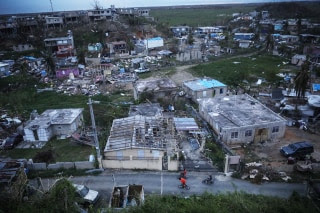In the end it does not matter, though, as nature does not care what man thinks. It will do what it will do. In evolutionary fashion if human beings do nothing on climate change
those who ignore it will die out and hopefully will NOT take those of us who are science
oriented with them.
NB:
(Latin for nota bene or note well): 98% of scientists
involved in climate change research see the link between the smothering
of the earth with filthy fossil fuels such as oil, gas and coal as some
of the major causes of climate change.
This is not in dispute but is only in dispute with 2% of oil and gas
scientists and
those in the Trump administration like Scott Pruitt, Trump's cabinet
secretary head of the EPA he loathes, who do the bidding of the fossil
fuel industries because the fuel industries fill their pockets with cash
and spend billions in efforts to dispute its causal connection to
climate change. The
congressmen and women who dispute this science like those before them
beholden to the tobacco industry who said the causal relationship of
cigarettes to human health and cancer was inconclusive until they could
not deny it anymore while hundreds of thousands died from their
poisonous products. Today the Congressmen and women who dispute fossil
fuel's direct causation of climate change and its deleterious effects
enjoy their pockets bulging with fossil fuel money. Sad!
WASHINGTON — Climate change is costing
taxpayers billions of dollars in disaster relief and the tab will only
increase as extreme weather events become more common, according to a
new government study.
The federal government has spent an estimated $350 billion over the past decade responding to extreme weather and fire events, which are exacerbated by climate change, according to the Government Accountability Office (GAO) report. It comes as Congress moves to approve billions of dollars in extra funding for hurricane relief.
"Climate change impacts are already costing the federal government money, and these costs will likely increase over time as the climate continues to change," the report found.
The federal government has spent an estimated $350 billion over the past decade responding to extreme weather and fire events, which are exacerbated by climate change, according to the Government Accountability Office (GAO) report. It comes as Congress moves to approve billions of dollars in extra funding for hurricane relief.
"Climate change impacts are already costing the federal government money, and these costs will likely increase over time as the climate continues to change," the report found.
This year's unusually destructive hurricane season has already been a drain on Federal Emergency Management Agency coffers, and California’s historically deadly fires are likely to cost the government even more.
The Senate on Tuesday is expected to approve an additional $36.5 billion in disaster relief, which has already passed the House. That’s on top of the $15 billion in supplemental disaster funds Congress approved last month, suggesting this year's tab will be unusually high.
In addition to the $205 billion spent directly on disaster relief over the past decade, the government has spent $90 billion for crop and flood insurance, $34 billion for wildland fire management and $28 billion for repairs to federal facilities, according to the report.

The government has taken some steps to address climate risks, the report notes, but President Donald Trump signed an executive order in March to rescind some of the planning efforts, a move that "created uncertainty about whether other planning efforts would continue or take their place."
The report acknowledges that its conclusions are imprecise and incomplete, since it requires linking complicated climate and economic models, but the GAO is known for being conservative in its estimates, especially on controversial issues.
No comments:
Post a Comment